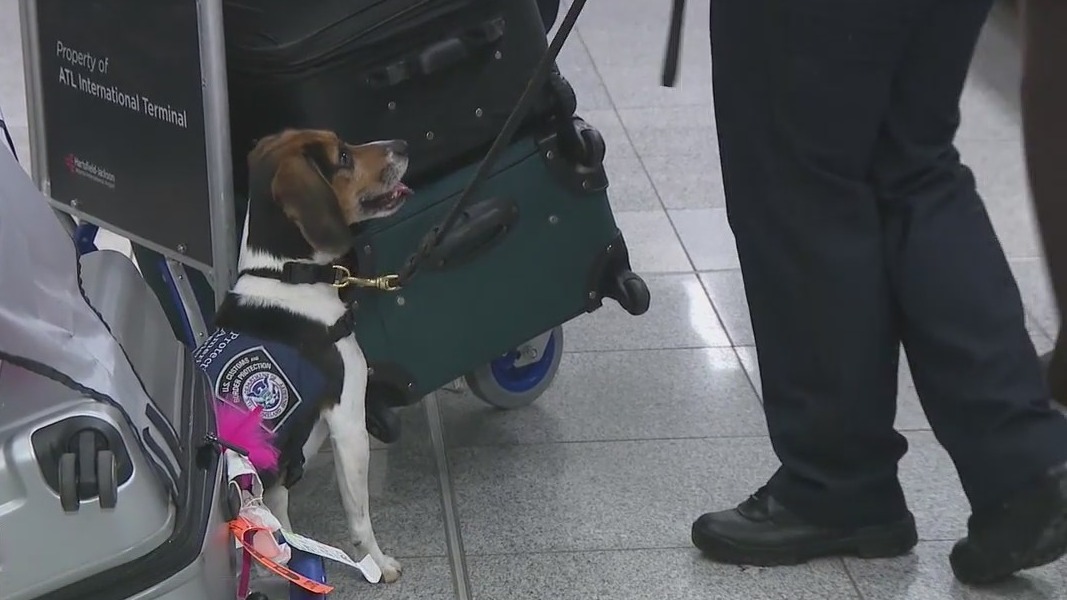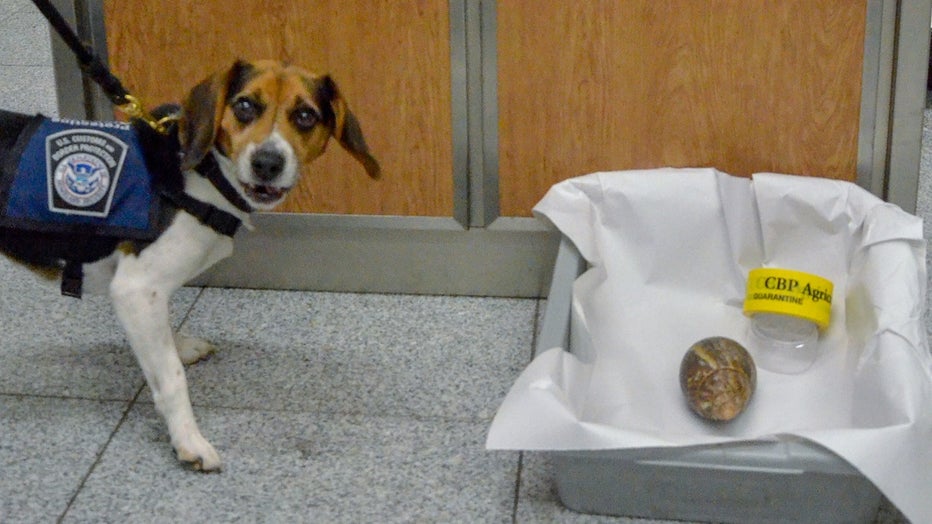Behind the scenes with the ‘Beagle Brigade’ at Atlanta's airport

Watch Mox, part of the 'Beagle Brigade' hard at work at Atlanta's airport
The so-called "Beagle Brigade" works with U.S. Customs and Border Protection officers, focusing on protecting the country's food supply.
ATLANTA - A special group of pups is on patrol at Hartsfield-Jackson Atlanta International Airport working hard to protect our country from foreign invaders.
The so-called "Beagle Brigade" works with U.S. Customs and Border Protection officers, focusing on protecting the country's food supply.
"We are a layer of protection for things coming into the country," one agriculture specialist and K-9 handler said.
The dogs are hard-working and have a nose toward trouble.
"Because he's so good at his job, I don't have to do anything else," the officer said. "He just gave me the response I was looking for, he sat and I'm like something is here."
The dogs and officers are looking for items of interest that could hurt the U.S.
CBP seizes about a hundred pounds at Hartsfield-Jackson every day and the items vary by country. Around holidays like Thanksgiving, they tend to find even more.
"We want to make sure our agriculture is protected in the United States and one way to do that is preventing diseases from other countries from getting in that could affect our livestock, our vegetables, our fruits, our meats, things like that," said Dean Helfers, a CBP Agriculture Specialist

K9 Mox, who is part of the U.S. Customs and Border Protection so-call "Beagle Brigade" at Hartsfield-Jackson Atlanta International Airport sniffed out this live Giant African Snail on Nov. 8, 2022. (Courtesy U.S. Customs and Border Protection)
Earlier this month at Atlanta's airport, 'Mox' the beagle alerted to a live Giant African Snail in someone's checked bag from Nigeria. The snail can cause agriculture issues and carries a parasite that can lead to meningitis.
"We were able to determine that the snail was a risk to the U.S., so we had to take care of that risk," Helfers said.
Everything seized is eventually destroyed on the site. Officers ensure it is a learning experience for passengers since not everyone knows what they can and cannot bring.
"It still upsets them sometimes that we have to take the food items from them, but at the end of the day they understand we're protecting U.S. agriculture," Helfers said.
The beagle teams work 365 days a year and they are just one part of a layered approach to keep harmful items out of the country.
If you want information on what you can and cannot bring into the U.S. click here.

